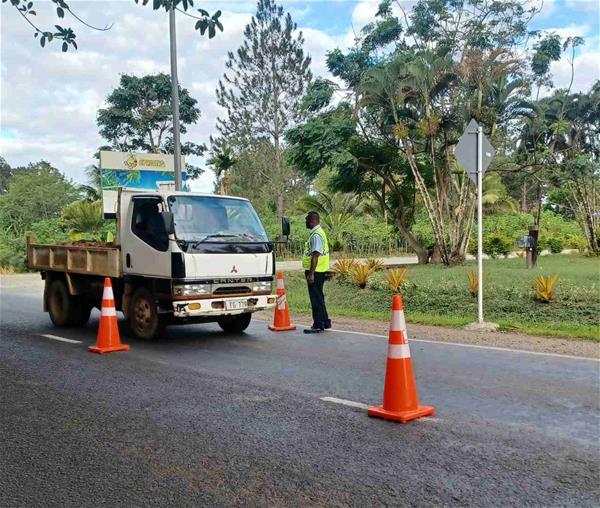SUVA, Fiji (9th October 2025): The Land Transport Authority (LTA) management and staff across all four divisions will be out on the roads this Fiji Day public holiday weekend to ensure the safety and well-being of all road users.
The Authority is reinforcing its commitment to care, service, and safety for the public, urging drivers, passengers, and pedestrians to remain vigilant, responsible, and considerate on our roads.
LTA Chief Executive Officer Irimaia Rokosawa says with heightened movement this around the country during major national events and the festive season, the Authority is calling for increased awareness and strict adherence to road safety rules to prevent accidents and save lives.
He says the Authority’s presence on the roads demonstrates its ongoing commitment to the safety of all road users, particularly during the festive periods when vehicle movements increase.
“Fiji Day is a time for celebration, reflection, and national pride. While we enjoy the festivities, we must also prioritise the safety of everyone on our roads.
“LTA staff and management will be actively monitoring highways, town centres, and public transport areas to ensure compliance with road rules and to support safe travel across the country,” Mr Rokosawa said.
“Our staff and management will be out not only to enforce the law but also to educate and guide road users. This is part of our ongoing commitment, ensuring that everyone can travel safely and enjoy the celebrations.”
He urged motorists to carry out essential vehicle checks before travelling, ensuring that tires, brakes, and lights are in good working condition.
The CEO said joint enforcement operations with the Fiji Police Force would continue to ensure compliance and adhere with traffic regulations and speed limits as speeding remained the top cause of fatalities on our roads this year.
“Improper overtaking, pedestrians at fault and driving under the influence of alcohol and drugs are major risks to public safety on our roads. Motorists should rest before long trips, take regular breaks, and share the driving where possible. No celebration is worth putting lives at risk. If you are feeling drowsy, stop somewhere safe and take a break,” Mr Rokosawa said.
“Those planning to consume alcohol during the Fiji Day festivities are encouraged to arrange for a designated driver, use public transportation, or stay overnight to avoid putting themselves and others in danger.
“Passengers are reminded to wear seatbelts, avoid distracting the driver, discourage reckless driving, and speak up if they witness unsafe behaviour—reporting it to the Authority if the driver does not heed their concerns.”
He urged pedestrians to use designated crossings, stay alert, avoid distractions, and wear bright clothing at night, while parents and guardians should closely supervise children near roads, car parks, and public gathering areas.
Mr Rokosawa also called on public transport drivers and operators to ensure their vehicles are roadworthy and operated according to road laws and safety standards.
“We are also monitoring PSV drivers closely. Public transport must be safe and reliable, not just convenient,” he said.
“We will not hesitate to take necessary action against drivers or operators who disregard safety regulations. When passengers step on to a bus, minivan, or taxi, they are placing their trust in that driver—and that trust must never be taken lightly.”
He said the number of lives lost on Fiji’s roads in recent weeks could have been avoided with better judgement and responsible driving.
“The Authority will continue working closely with the Fiji Police Force on joint operations, including road checkpoints, vehicle inspections, monitoring of public transport operations, and enforcement of traffic rules, to ensure the safety of all road users during the long weekend.”
